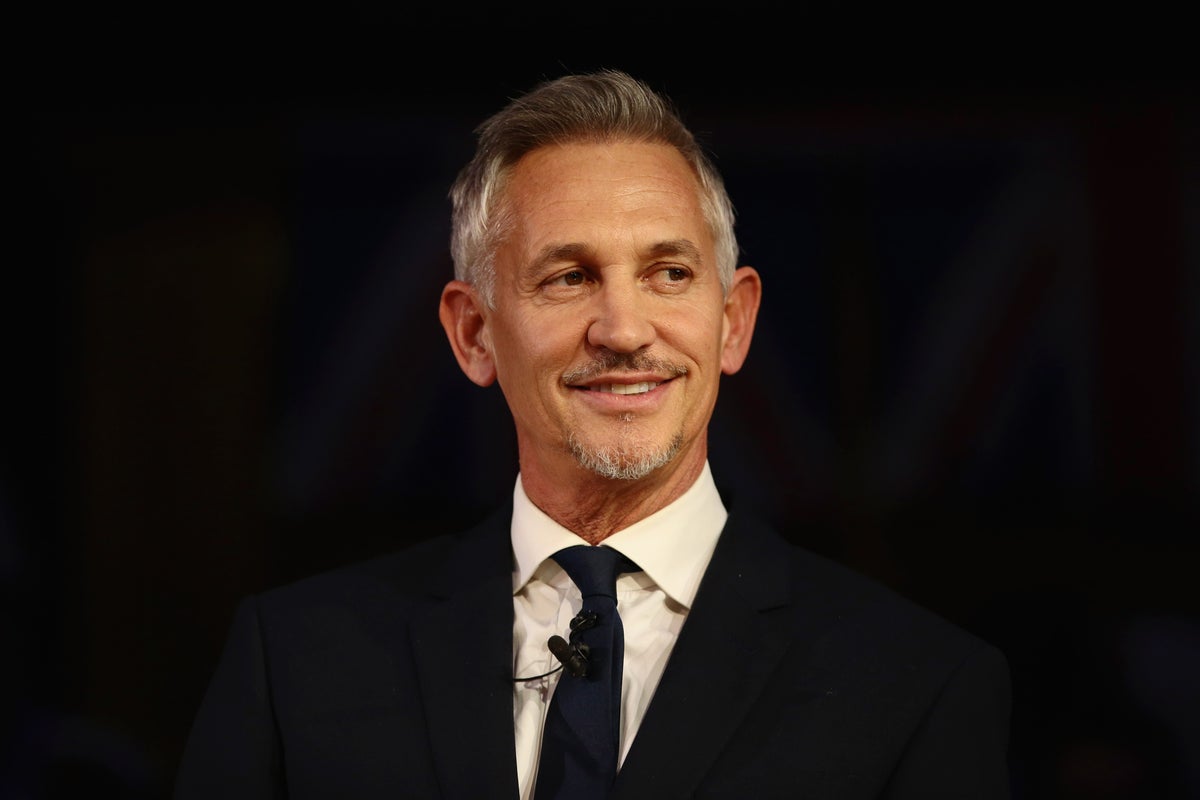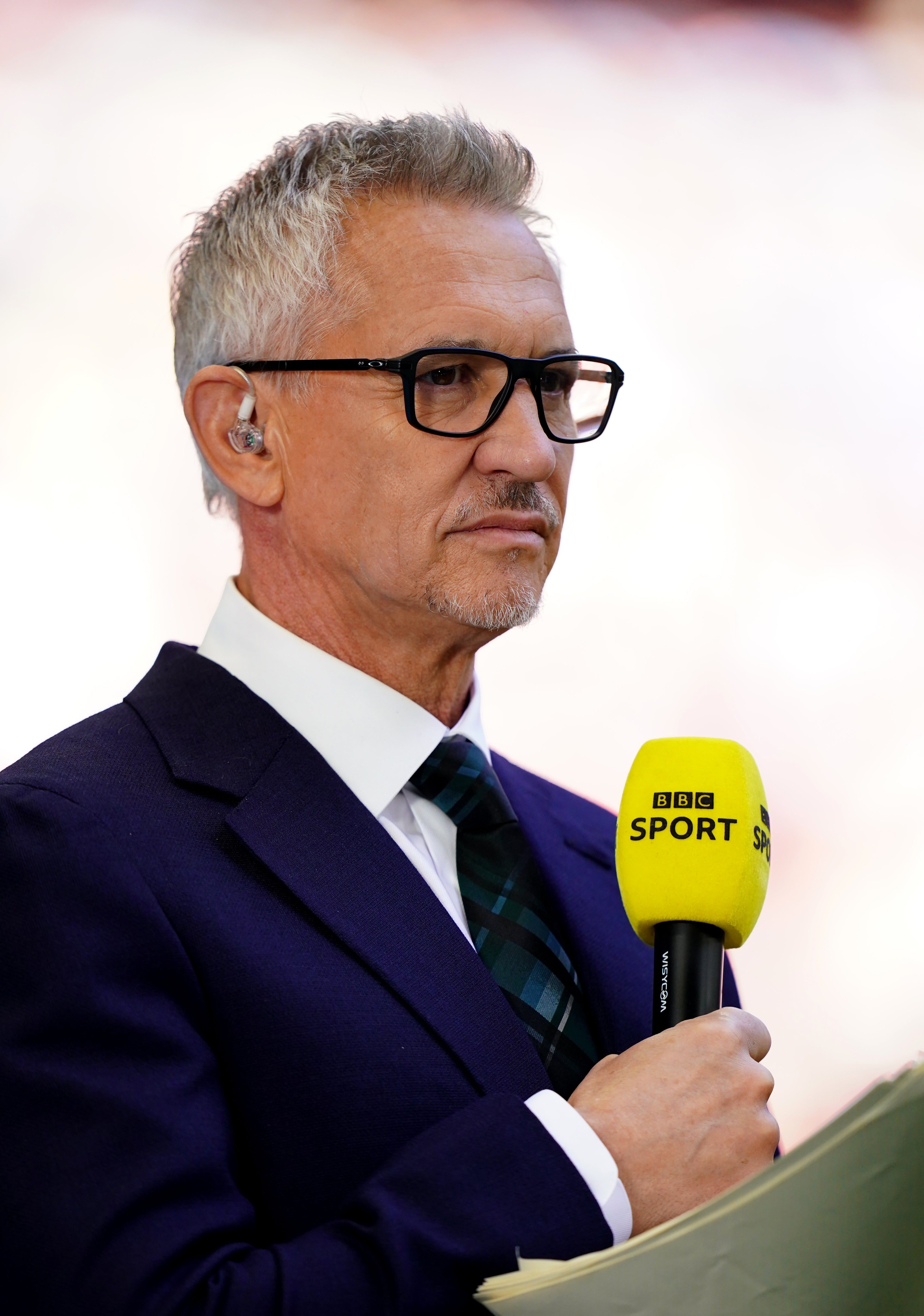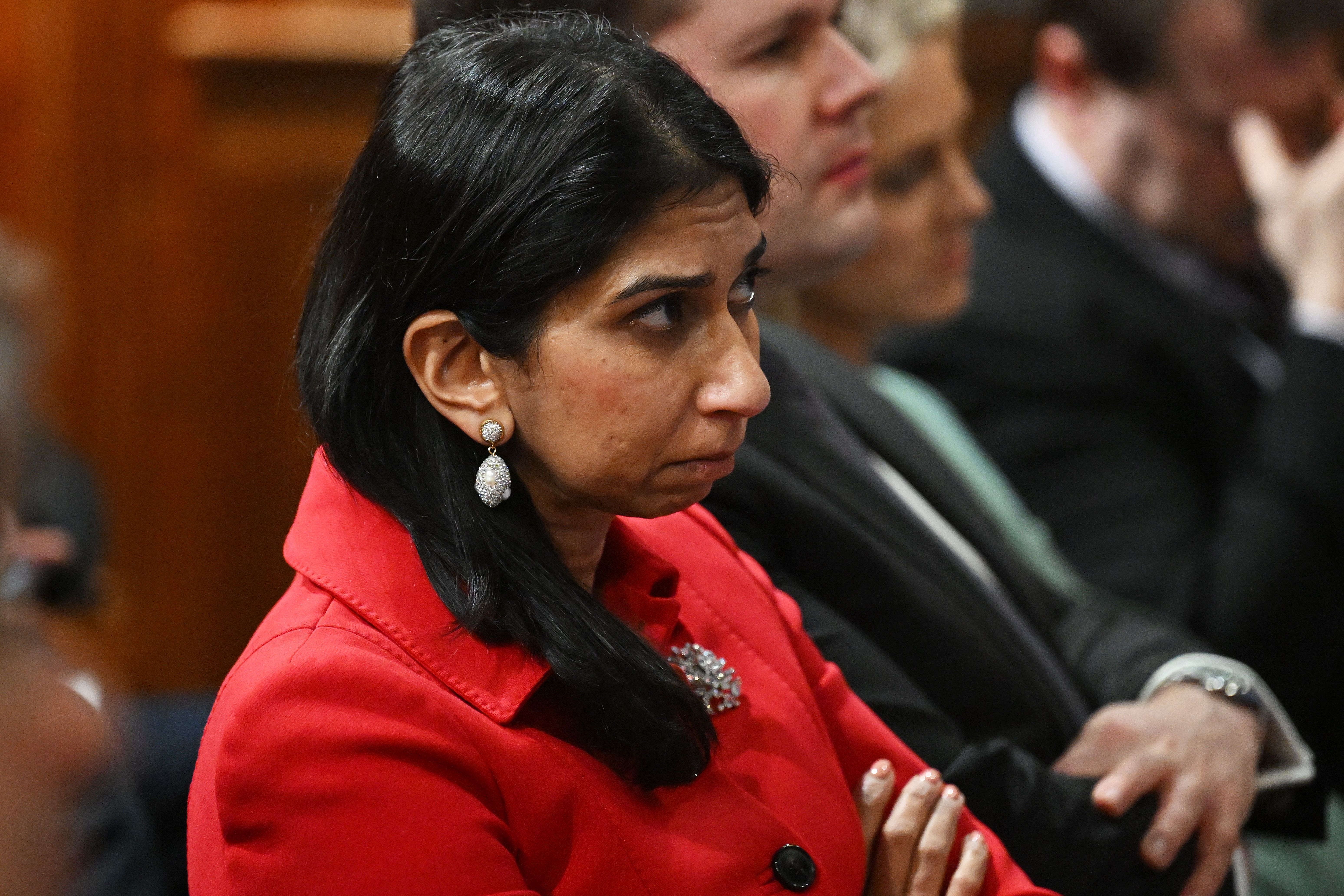
A defiant Gary Lineker has vowed to continue speaking up for the “voiceless” after he was criticised for apparently comparing the government’s crackdown on illegal immigration to Nazi Germany.
The Match of the Day presenter is due to be spoken to by BBC bosses and “reminded of his responsibilities on social media” after he commented on government plans to stop migrant boats crossing the Channel.
Mr Lineker had responded to a Twitter video by home secretary Suella Braverman outlining the plan, which he called “beyond awful”.
Responding to someone who said he was “out of order”, the presenter wrote on Tuesday night: “There is no huge influx. We take far fewer refugees than other major European countries.”
Mr Lineker added: “This is just an immeasurably cruel policy directed at the most vulnerable people in language that is not dissimilar to that used by Germany in the 30s, and I’m out of order?”
After coming under fire for the remarks, Mr Lineker tweeted on Wednesday morning: “Great to see the freedom of speech champions out in force this morning demanding silence from those with whom they disagree.”
His tweet did not refer to anyone specifically but it may have been directed towards some campaigners and Tory MPs who criticised him but have in the past voiced their support for free speech.
BBC employees are covered by strict impartiality rules which the corporation says covers “all its output”.
Lee Anderson, the Tory Party chairman, was among those criticising Mr Lineker’s comments, accusing him of “lecturing”.
He said: “This is just another example of how out of touch these overpaid stars are with the voting public. Instead of lecturing, Mr Lineker should stick to reading out the football scores and flogging crisps.”
Mr Anderson has written about free speech on his website. “Stop the ‘Woke Express Train’, I want to get off,” the title of the article reads.
He writes that there is a “tiny section” of society that “goes out of their way every single day looking for things that may upset them”.
“We live in a free country, and with free speech comes the right to sometimes offend,” Mr Anderson adds.

Ms Braverman told ITV’s Good Morning Britain on Wednesday she was “very disappointed” by Mr Lineker’s comments.
She added: “Equating our measures - which are lawful, necessary and fundamentally compassionate - to 1930s Germany is irresponsible and I disagree with that characterisation.”
Ms Braverman, speaking in the Commons on the day before, said it would be a betrayal of British voters not to tackle Channel crossings. She said that the “law-abiding patriotic majority” has had enough of people arriving in the UK illegally.
In an interview with BBC Radio 4’s Today programme on Wednesday, she refused to answer several times when asked if those who had concerns about the policy were unpatriotic.
Tory MPs called the Match Of The Day host’s comments “foul, ill-conceived and disgraceful” and called on the broadcaster to take action. Robert Jenrick, the immigration minister, was among other Conservatives criticising Mr Lineker’s remarks.
He told Times Radio that Mr Lineker is “so far out of step” with what the public wants to be done regarding small boat crossings.

“My children are the grandchildren of Holocaust survivors, and I think those sorts of words should not be thrown around lightly,” the minister said. “Gary Lineker is paid for by the British taxpayer.”
Downing Street described Mr Lineker’s remarks as “not acceptable”.
Mr Lineker, in a separate tweet on Wednesday morning, thanked people who had sent him messages of support and said he would continue trying to “speak up for poor souls that have no voice.”
“I have never known such love and support in my life than I’m getting this morning (England World Cup goals aside, possibly), “ he said.
“I want to thank each and every one of you. It means a lot. I’ll continue to try and speak up for those poor souls that have no voice. Cheers all.”
Shadow home secretary Yvette Cooper said she does not think it is "right to make comparisons with the 1930s" after the comments but added that "people can have their own views".
BBC director-general Tim Davie previously warned staff over their use of social media when he took on the role at the end of 2020, and guidelines around social media use have since been updated.
Staff were told they need to follow editorial guidelines and editorial oversight in the same way as when making BBC content.
Emily Maitlis, the former BBC journalist and presenter of the Newsagents podcast, questioned why Mr Lineker was allowed to raise questions about the human rights records of other countries during the World Cup but not allowed to criticise his own government’s policies.
“Curious that@GaryLineker was free to raise questions about Qatar’s human rights record - with the blessing of the bbc - over the World Cup , but cannot raise questions of human rights in this country if it involves criticism of government policy...” she wrote in a tweet.







